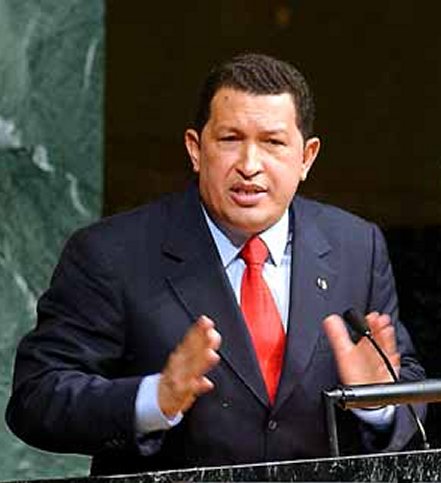
CARACAS (Reuters) - Venezuela will switch off lights for hours at a time in Caracas and other cities such as oil town Maracaibo in planned blackouts to tackle power shortages that threaten President Hugo Chavez's support.
Officials announced the nationwide electricity rationing lasting at least until May on Tuesday and said even schools and small health clinics would be hit in South America's top oil exporter.
Venezuela mostly depends on hydroelectricity for its power and has been hard hit by a drought Chavez blames on the El Nino weather phenomenon.
"The rationing is at a national level and is for four hours every 48 hours," said Javier Alvarado, president of the Caracas Electricity corporation, which was nationalized in 2007 and previously belonged to U.S. company AES.
One of the cities to be hit by the new electricity rationing is Maracaibo, the country's second largest town and the capital of oil heartland Zulia.
Lights went out there on Tuesday from 3 p.m. (2:30 p.m. EST). The blackouts are planned by city district.
However, they should not affect vital oil fields and refineries, which mostly have their own generators. Major city services, like hospitals and trains, will also not be affected.
Venezuelans are already suffering widespread water rationing and increased power cuts and could punish the socialist president for the problems in September elections for lawmakers.
Chavez must navigate a number of issues, including price rises after a devaluation and high crime, if he is to maintain his approval ratings above 50 percent this year.
Venezuela enlisted Cuban help to "bomb" clouds with chemicals last month in an attempt to artificially trigger rainfall over the South American nation's largest reservoir and main power source, the vast Guri Dam.
Alvarado said water levels at the Dam dropped by 9 meters (30 feet) to 261 meters above sea level last year. Energy production is diminished as the water level falls. The dams turbines are located at 240 meters above sea level.
Critics blame the government for not investing enough in the national grid since Chavez took office 11 years ago.
The president say previous government made critical errors by building most of the nations energy infrastructure on one river that is affected by rainfall.
(Reporting by Frank Jack Daniel; Editing by Marguerita Choy)
No comments:
Post a Comment